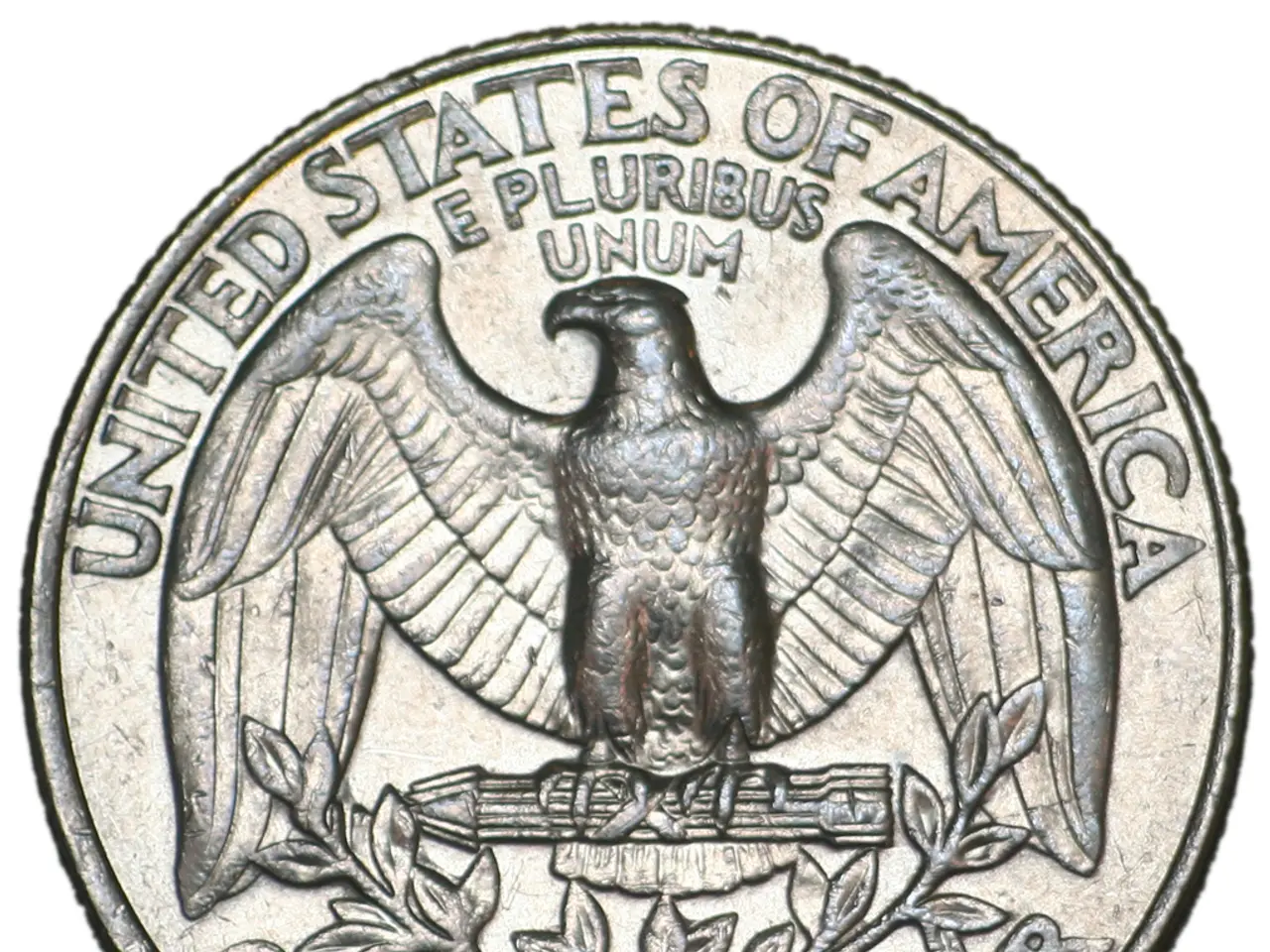SEC deems meme coins non-securities, Musk compares them to a gambling establishment like a casino.
SEC Commissioner Crenshaw Disputes Definition of Meme Coins and Calls for Tighter Regulation
In a contrasting stance to the Securities and Exchange Commission (SEC) under Chairman Paul S. Atkins, Commissioner Caroline Crenshaw has expressed her disagreement with the current regulatory approach towards meme coins. Crenshaw believes that the lenient stance could potentially allow for illegal offerings of unregistered securities.
According to the SEC's current position, most meme coins are not considered securities and therefore are not subject to the stringent securities regulations that traditionally govern investment contracts. This approach aims to foster innovation and reduce unnecessary burdens on crypto markets. However, Crenshaw is skeptical of this broad exemption, arguing that regulatory guidance is insufficiently grounded and may allow for such illegal activities.
Crenshaw's concerns stem from the prevalence of manipulation through pump-and-dumps and rug pulls in the meme coin market. She also highlights that many meme coins rely on managerial efforts, such as limiting supply, buybacks, burning, and getting a listing on an exchange. This, she argues, could potentially be seen as a violation of securities laws.
The commissioner's dissenting stance represents a more conservative regulatory philosophy, contrasting with the chairman's more innovation-friendly agenda. This dissent influences SEC votes and contributes to ongoing uncertainty about the regulatory treatment of meme coins and other crypto assets in the U.S.
In addition to meme coins, Crenshaw also has reservations about Crypto 2.0 and questions the SEC's withdrawal from many cases before providing guidance on what is or is not a security. She raises concerns about eroding regulatory jurisdiction, policing fraudulent Ponzi schemes, and giving special treatment to crypto assets.
Meme coins, known for their significant market price volatility, typically have limited or no use or functionality. Some, like Commissioner Crenshaw, compare them to a casino or a pyramid scheme. Elon Musk, in an interview, advised against betting heavily on meme coins, thinking they are acceptable as long as people treat them as entertainment and don't risk too much.
The SEC's guidance on meme coins is akin to treating them as collectibles. Joe Rogan, in a discussion with Musk, expressed similar views, believing that meme coin pump and dumps should be regulated. Despite this, the SEC has maintained its stance that most meme coins are not considered securities.
The ongoing debate between Commissioner Crenshaw and the SEC majority underscores the need for clear, consistent, and comprehensive regulatory guidance in the rapidly evolving crypto market. As the market continues to grow, it is crucial that regulations are in place to protect investors and ensure compliance with securities laws.
Note: This article is based on factual bullet points and is presented in a journalistic style suitable for a general audience. The opinions expressed here are those of the individuals mentioned and do not necessarily reflect the views of the Securities and Exchange Commission.
[1] SEC Press Release, SEC Approves First Exchange-Traded Product for Bitcoin (24 October 2017), https://www.sec.gov/news/press-release/2017-209 [2] Caroline Crenshaw, Dissenting Statement, SEC Staff's Interpretive Statement on the Framework for "Investment Contract" Analysis of Digital Assets Under the Securities Act of 1933 (29 March 2022), https://www.sec.gov/comments/sr-no-21-70/sr-no-21-70-2.htm [3] Caroline Crenshaw, Dissenting Statement, Framework for "Investment Contract" Analysis of Digital Assets Under the Securities Act of 1933 (29 March 2022), https://www.sec.gov/comments/sr-no-21-70/sr-no-21-70-1.htm [4] Caroline Crenshaw, Dissenting Statement, Proposed Rule Change to List and Trade Shares of the Grayscale Bitcoin Trust (6 October 2020), https://www.sec.gov/comments/s7-25-19/s72519-12d1.htm [5] Hester Peirce, Commissioner, Statement, Crypto-Asset Enforcement Framework by the Division of Enforcement (28 January 2021), https://www.sec.gov/news/public-statement/peirce-crypto-asset-enforcement-framework-division-enforcement
- Commissioner Crenshaw's push for tighter regulation of meme coins extends to Crypto 2.0, as she questions the SEC's decision to withdraw from many cases without first providing guidance on what constitutes a security.
- In the realm of enterprise finance and investing, Crenshaw's concerns about meme coins and crypto assets underscore the need for clear regulatory guidelines to protect investors, ensure compliance with securities laws, and maintain jurisdiction.
- The ongoing debate surrounding meme coins in the technology sector has revealed that some, like Commissioner Crenshaw, compare them to pyramid schemes due to their significant market price volatility and lack of use or functionality.
- The legal and regulatory landscape of meme coins and digital assets in the entertainment industry is shrouded in uncertainty, with Commissioner Crenshaw advocating for a more conservative approach to regulation, contrasting the innovation-friendly stance of the SEC majority.




